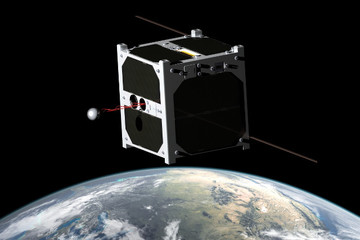
The Philippines is expected to launch two new satellites that will be built by Filipino scientists in the next two years. The Department of Science and Technology (DOST), the government agency that handles the program, unveiled this plan on Tuesday that will launch Diwata (PHL-Microsat-1) and another yet to be named micro-satellite (PHL-Microsat-2) in 2016 and 2017 respectively.
According to DOST, these two micro-satellites are part of the disaster-mitigation efforts of the government under the project called Philippine Scientific Earth Observation Micro-Satellite (PHL-Microsat) Program. Program leader Dr. Joel Marciano also said that this initiative also aims to assist in “weather forecasting, agriculture, fisheries, forest protection, mining, and even the protection of cultural and historical sites”.
A ground receiving station called Philippine Earth Data Resources Observation (Pedro) Center will also be built at the Subic Freeport in Zambales to receive the data captured by the satellites.
The whole 3-year project will cost a total of P840.82 million ($19 million). The government will only shoulder P324.8 million ($7.3 million) as the remaining P515.92 million ($11.6 million) will be shouldered by two partner Japanese universities, Tohoku University and Hokkaido University.
Asked how the government can potentially benefit from the said program, DOST Undersecretary Rowena Cristina Guevara said “Just to give you an idea, 30 minutes of satellite data costs P58 million ($1.3 million). We spend P2 billion ($45.1 million) a year to acquire satellite imagery. With our own satellite, we can get data 365 days a year and we can task the satellite to take a picture of a particular location.”
As for Japan, their support will help aid in the Japanese-led initiative of establishing the Asian Microsatellite Consortium (AMC) that already includes micro-satellites of Indonesia, Vietnam, and Thailand.
Some may also argue about the other Filipino satellites Agila 1 and Agila 2. While the country had controls to the satellites, both were not designed and built by Filipino scientists as compared to Diwata.
Sources: KickerDaily, Rappler
- Phishing Email Analysis Landing Page - September 19, 2024
- BPI to hold Cybersecurity Conference to ‘Fortify Cyber-Resilience in an AI World’ - July 25, 2024
- New Smishing Campaign makes use of Globe SMS Sender ID - May 27, 2024
